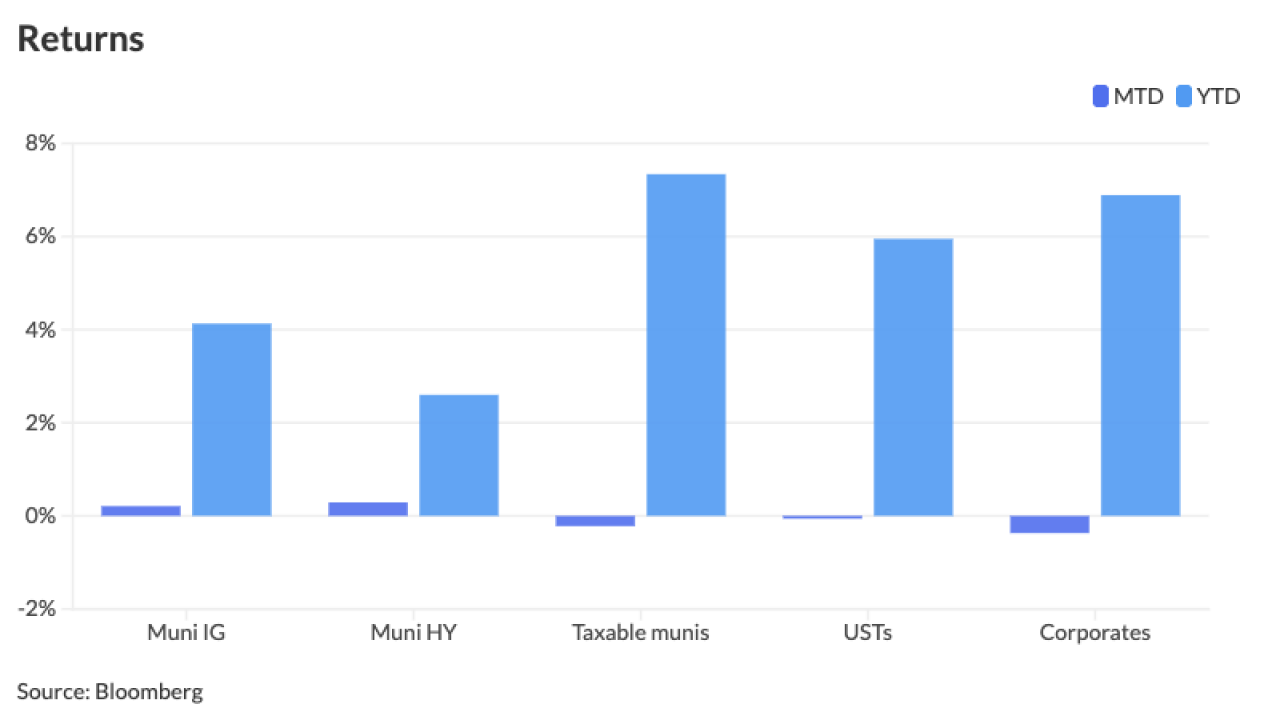Local governments would win the ability to use pandemic funds for infrastructure under a bipartisan deal on a $10 billion COVID relief bill announced Monday in the Senate.
The increased flexibility would appear to sweeten a move to help pay for the bill by tapping $887 million of local government funding allocated in the American Rescue Plan Act.
The $10 billion legislation would be paid for entirely from five buckets of unspent American Rescue Plan Act funds.
Senate Majority Leader Chuck Schumer, D-N.Y., and Sen. Mitt Romney, R-Utah announced the tentative deal Monday.
"Importantly, this bill is comprised of dollar-for-dollar offsets and will not cost the American people a single additional dollar," Romney said in a statement.

The latest deal provides more details on a tentative
The bill does not include money for international vaccine efforts, which
“While we were unable to reach an agreement on international aid in this new agreement, many Democrats and Republicans are committed to pursuing a second supplemental later this spring,” Schumer said.
White House Press Secretary Jen Psaki said the administration supports the bill and pushed for swift passage.
Signed into law in March 2021, ARPA provided $150.2 billion to counties, cities, tribes and non-entitlement units of local governments as part of the $350 billion Coronavirus State and Local Fiscal Recovery Funds program.
How cities and counties are able to spend the money – and increasing Republican scrutiny of how they have already spent the money – has been a major issue for issuer advocates, who have spent months combing through Treasury rules.
A Democratic
The fund allocated $1.5 billion to revenue-sharing counties in states, D.C., Puerto Rico, Guam, and the Virgin Islands over FY 2022 and 2023 and provides tribal governments with $500 million.
In addition to those local funds, other offsets include: $2.3 billion from a program for aviation manufacturing workers; $1.9 billion from unused grants for shuttered live entertainment venues; $1.9 billion from a state small business credit program; $1.6 billion for Agriculture Department aid; $900 million for the Small Business Administration's economic injury disaster loans program; and $500 million from aid to colleges and universities.
The agreement to include the flexibility provisions will lift language from Senate Bill 3011, which unanimously
The National League of Cities, National Association of Counties and other local government advocates
Newly eligible uses would include a wide variety of surface transportation projects ranging from national highway programs, the TIFIA loan program, nationally significant freight and highway projects and the Territorial and Puerto Rico Highway Program. The funds could also be used for transit, natural disasters and wildfire recovery.
The House late last year
House Speaker Nancy Pelosi said Monday she supports the deal in spite of some vocal opposition from within her party.
“The House looks forward to considering this urgent package upon its passage in the Senate and sending it to the President’s desk for signature. While this agreement represents a strong step that we must enact now, we will continue working to do more to give the Administration the resources it needs to keep our families healthy and our communities safe,” Pelosi said.
Congress may move to vote on the bill this week before it heads into a two-week recess on Friday.





